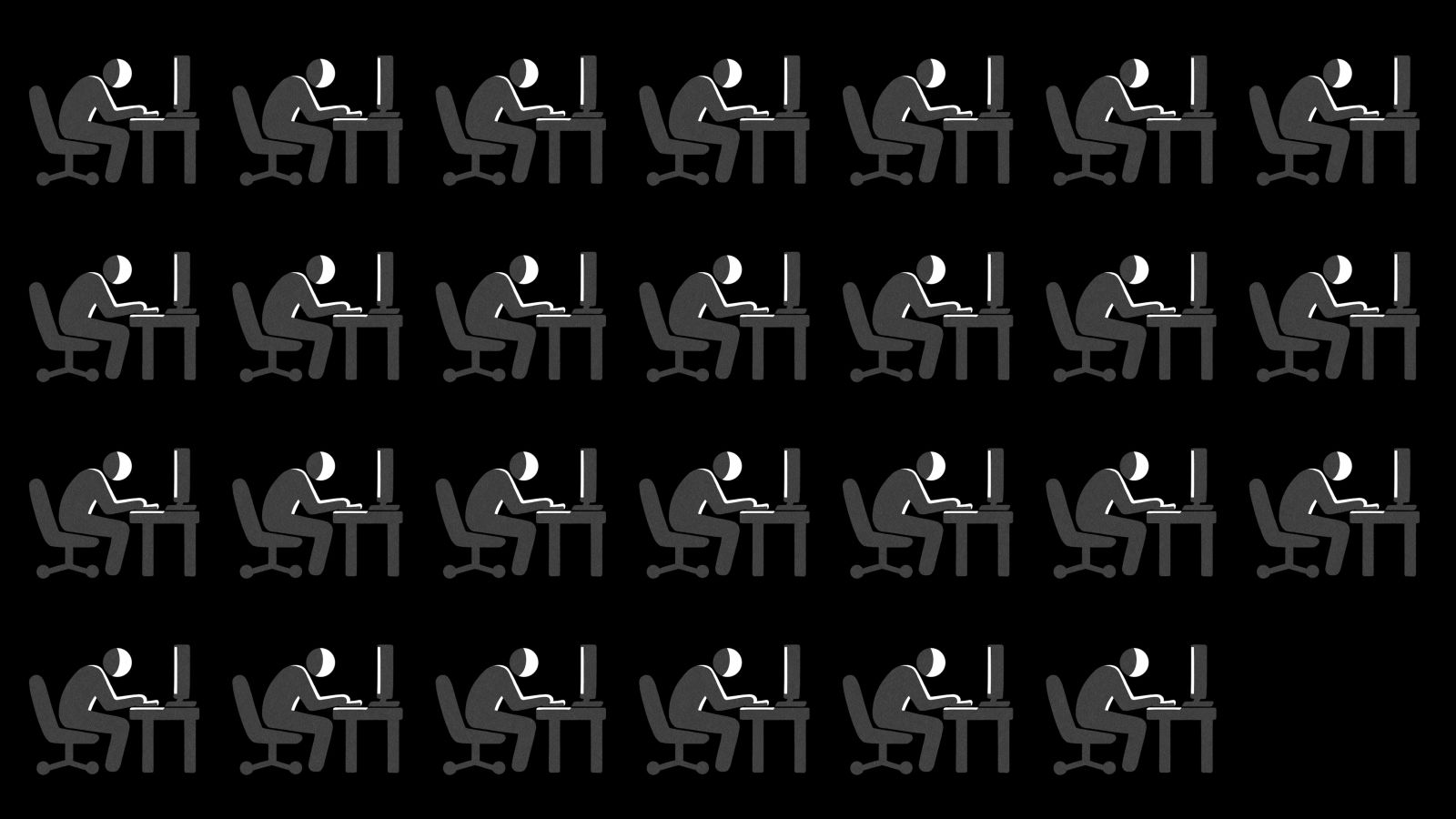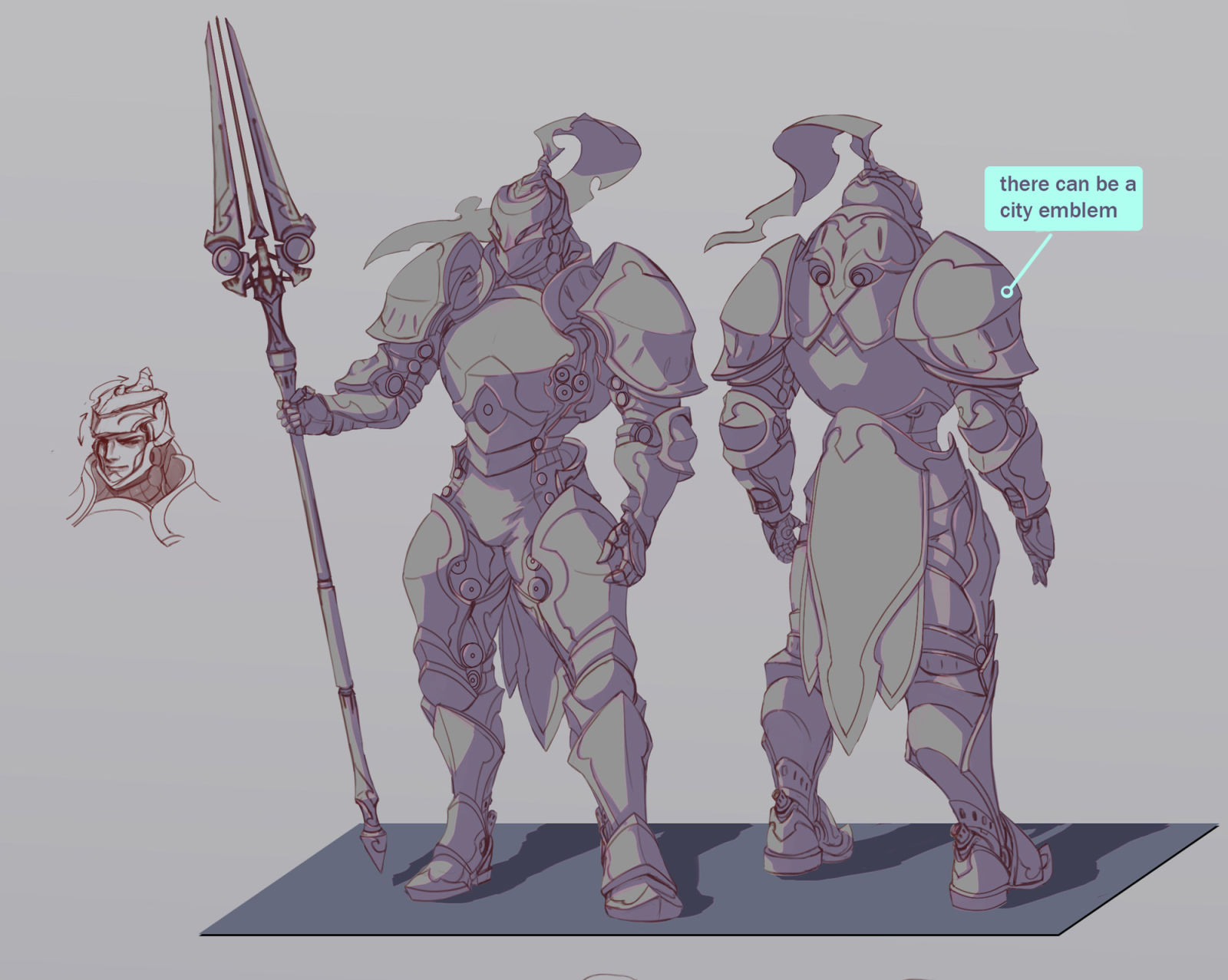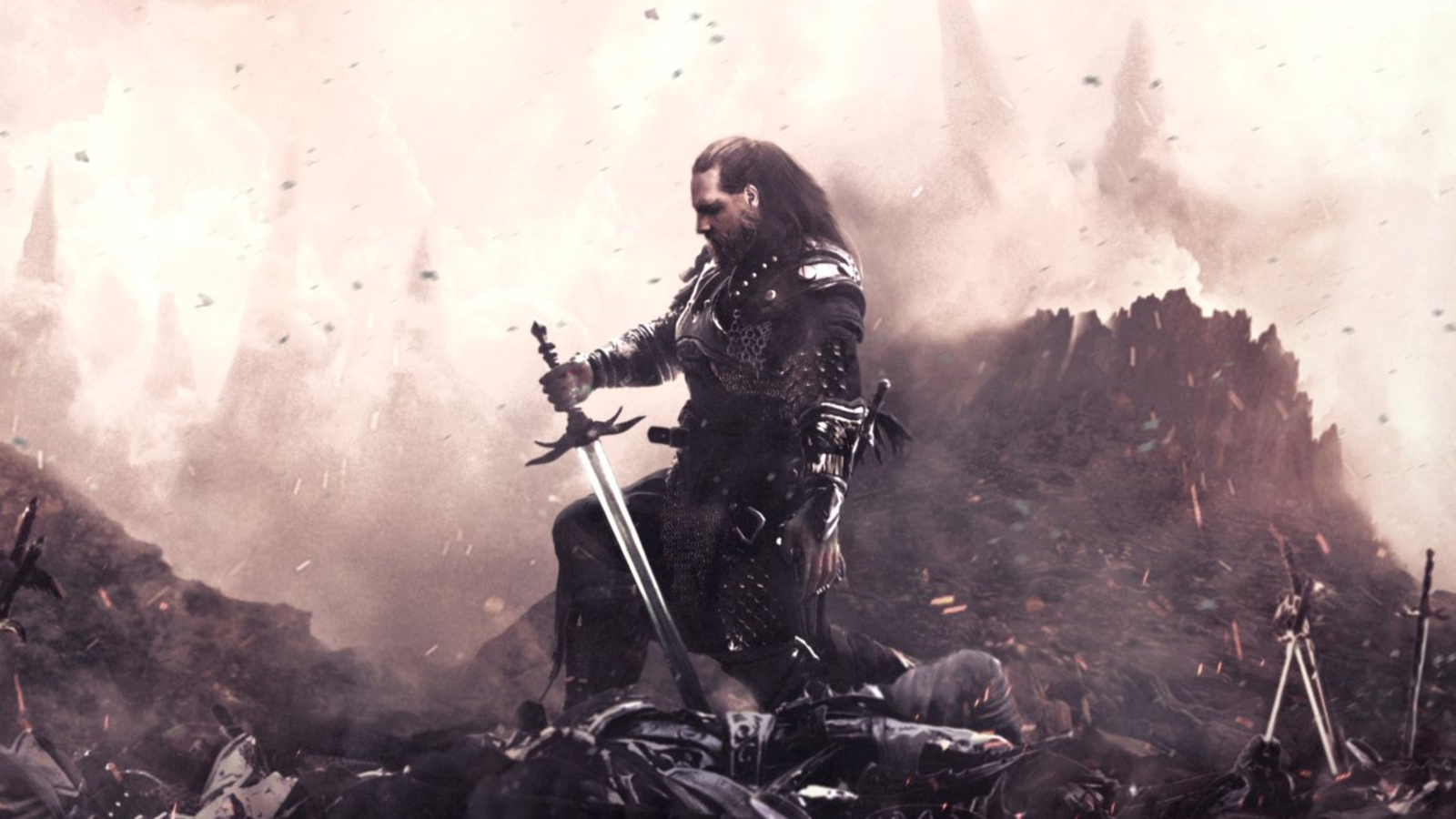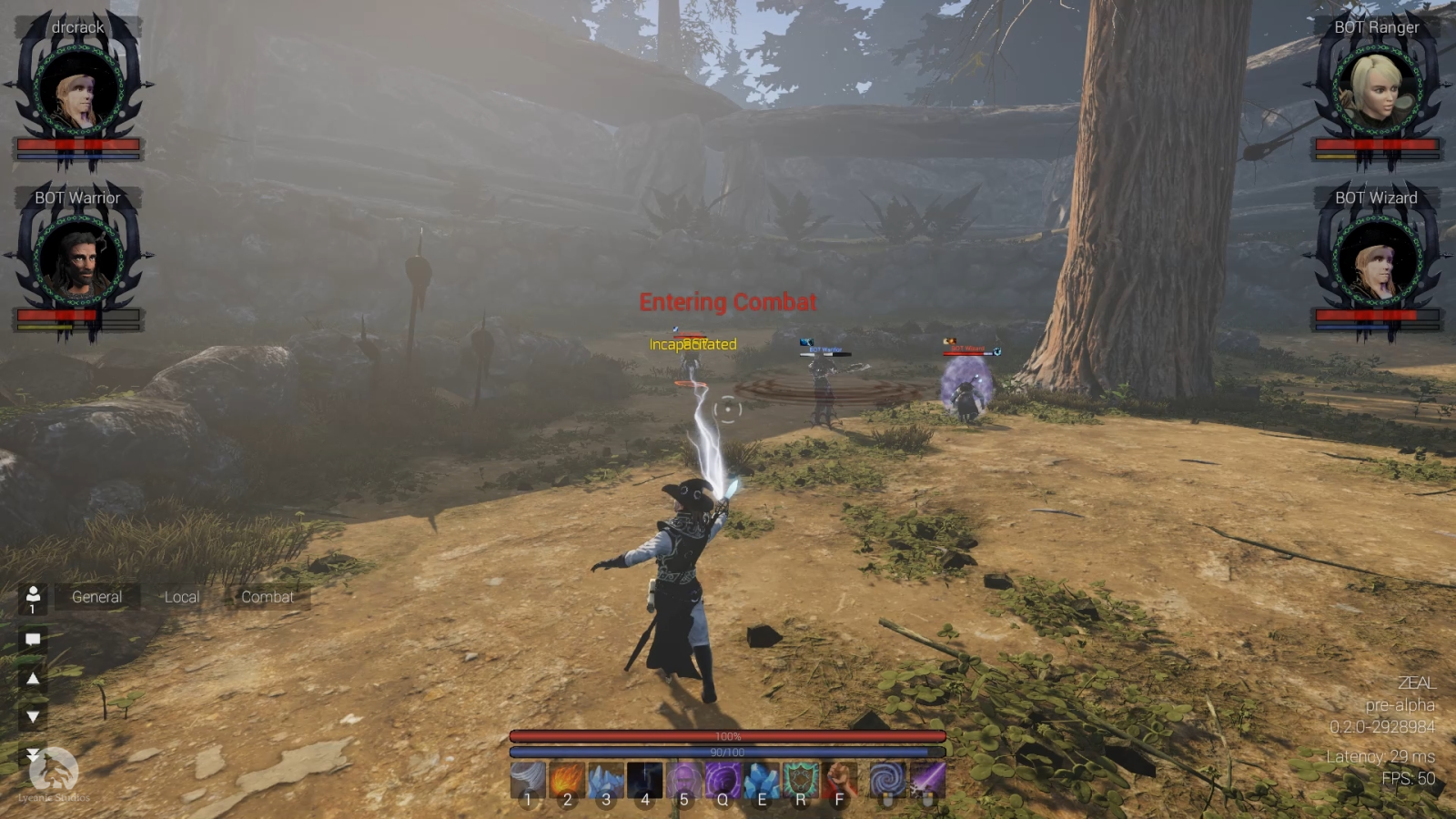How 25 people were tricked into working for a non-existent gaming company

Brooke Holden would have given everything to get into the video game industry.
She entered a British university to study game development, but halfway to the diploma she realized that she hated coding. In addition, she heard many terrible stories about working conditions in gaming companies, where employees regularly work 60-80 hours a week, and decided for herself: for no reason, this is not about me . But a year later, working as an office manager, Holden, at the age of 26, still dreamed of getting into the world of game development, possibly in some kind of team management position.
Once she published a post in a subredit dedicated to gathering teams for game development: “A team manager passionately in love with games who has no work experience is looking for a hobby project that needs help in supporting and managing it.” It just seemed like a prank, but the post still gathered half a dozen answers. One of them stood out against the general background: it was left from an account with an active history of hiring developers on Reddit. A user named Kova told Holden that his small team of three developers had recently turned into an organization of 48 employees and they needed a damn manager.
Holden was delighted. On June 22, 2019, she signed a contract with Drakore Studios, of which Kova was, assuming the position of Junior Production Manager at a cost of $ 13 per hour.
The problem was only one thing: in fact, Drakore Studios did not exist.
For a month and a half, Kova, whose real name was Rana Mahal, convinced at least 25 people to join a game studio that did not have a registered company, and to develop a video game for which he did not have rights, and which was not paid for. Six of them contacted us to tell their story.
This is a story about deceit, exploitation, incompetence and hopes, fueled by the desperate desire of the players to make their contribution to the industry, which from their very childhood spurred the imagination, uplifted and created friendships. This is a story about a boss who constantly told novice developers that their salary was about to come, and that investors would soon transfer a lot of money to the company's accounts, and that his high-ranking friends in large game studios constantly advised him during the development. But the reality was completely different, and when Drakore fell apart, it happened very quickly.
“People should not have entered the game industry through me,” Mahal Kotaku told Discord. “We did not conceive this maliciously. Write an article to warn other developers that this could happen. I made some mistakes. "
“This was my first job in the gaming industry,” says Brooke Holden. “I just didn't know what standards it was.”
In the process of interviewing for a position at Drakore, Holden found out that her task would be to support the team developing the Zeal game. At least this part of the story was true: Zeal is an early-access game released on Steam by Lycanic Studios in September 2018.
Lycanic's team consisted of two developers: Mert Dinçer and Tim Popov. They pored over Zeal for two years, but the game never took off. At Zeal, they sought to recreate intense player-versus-player battles from massive multiplayer RPGs like World of Warcraft . Dinser and Popov imagined that the game would be competitive, flexible and with a thoughtful design. Lycanic tried to get funding for the game on Kickstarter, but canceled the campaign, gaining only part of the required amount. However, there was still hope: almost 300 reviews on Steam were "mostly positive." The game even got the attention of a couple of major Twitch streamers, including Chance "Sodapoppin" Morris with 2.5 million subscribers.
“We did not have a budget for marketing,” says Dinser, “we are just indie developers trying to follow their passion. We thought that the game had a good idea and a sufficiently high-quality implementation, that people would be interested in it - publishers, investors, and so on. But we had no connections, no acquaintances. ”
Mahal, an active contributor to Discord's MMORPG, heard about Zeal from a fan of the game. According to Dinser, Mahal immediately suggested joining forces. “He wanted to buy our company and disband it,” says Dinser, “that suited us.”
Holden said that, according to Mahal, his family or family friends invested $ 25,000 in the studio, and money from other investors was due to arrive soon. Holden actively began to collect and manage the team. The team was about 25, not 48 people. They were 2D artists, 3D artists, designers, marketers, and even interns, and she carefully helped all of them 60 hours a week in excess of her duties as a part-time manager. The team included people such as the Croatian PD developer, the technical manager who worked on the Zeal roadmap. She was the father of four children from Virginia Brandon Murphy, who was recently fired from the PlayStation after seven years of work as a regional sales representative. She was a concept artist Julia Carolina Santana. And, of course, the original developers are Zeal Dinser and Popov.
In parallel, the studio was developing an MMO called AetherBound . According to Holden, for this game "there were already quite a lot of concept art," but not much else. Zeal would help their studio gain some respectability. Mahal told Holden that, among other things, he worked as a junior art director at Amazon Game Studios, where he signed a contract with Bioware to help develop Dragon Age Inquisition . He said that he studied with Mike Leydlow, who at that time was the senior creative director of the Dragon Age franchise, and now he will advise him to help Drakore Studios projects.
“I can’t recall anyone with that name, so it’s hard to imagine that I would advise him in that capacity,” Leydlow told Kotaku by mail. Amazon Game Studios did not respond to Kotaku 's request for confirmation of Mahal's words.
After conducting a small investigation, Dinser and Popov decided that they had suspicions about this guy. There was not enough documentary evidence of his words. On the other hand, what did they lose? “If there was even a tiny chance that the guy was telling the truth and could reach out to people from marketing, then the attempt was worth it,” says Dinser. "The situation with our game was nowhere worse."
Lycanic signed an agreement with Drakore, which transferred its rights to Zeal to Mahal in exchange for an advance payment of $ 7,000 plus promises of paid posts and a share in profits. At the same time, both owners of the company remained the leading developers. Fast enough, Zeal got a fully-equipped development team. Brooke Holden and Brandon Murphy wrote a pitch presentation of 21 slides in orange-pink tones and sent it to 32 game publishers. Some of them, such as Devolver and Team17, responded.
Mahal designed his reviews of Zeal as third-party ratings from acquaintances from large publishing companies: his friend from Riot Games believed that the cosmetic design of Zeal was completely wrong, and his friend from a large publishing company was already ready for investment, but instead of a character system class system.
Dinser began to suspect that Mahal gave his own views as the views of his (probably fictional) friends. There were other suspicious moments. Mahal said that someone from Epic Games offered him $ 2 million for the MMORPG AetherBound . (An Epic Games spokesperson told Kotaku that this statement was “untrue.”) Mahal began asking employees if they could start developing the game in Auto Chess style and release it in a couple of months. There was even talk of moving the entire studio to Canada, which was attractive to many because of the promise of free healthcare.
Meanwhile, Drakore Studios employees began to put pressure on Mahal to show them studio documents that no one had seen so far. Why was Drakore not registered in Canada? And, more importantly: when will they get their first salary?
None of the people Kotaku talked to received in these six weeks and knew no one who could tell about receiving payment for their work at Drakore. Most of them said that they should have received at least a few checks.

AetherBound Concept Art.
“He said that we have an investment of $ 25,000, which will be enough until the end of August,” says Holden. When she put pressure on Mahal, he replied that Drakore "had already spent those 25 thousand," and until he could raise new investments, they would not pay anyone. The staff Kotaku managed to talk to claims that they worked at Drakore Studios for 20-60 hours a week from mid-June to mid-July.
Fired from the PlayStation in early June, Brandon Murphy, who needs to feed four children, said he was promised to pay on July 11th. Murphy says he chose Drakore, rejecting six other job offers. “We discussed this with my wife and decided that it was only one month. We have enough money in the bank, so I can spend this month and put all my efforts into Zeal . Money will come in a month. ” When it came July 11th, there was no money.
The Mahal told Kotaku that $ 25,000 actually existed, but showed no documents to prove this. “You can say that I took these 25 thousand, spent them on drugs and never paid anyone,” he said. "I clearly conveyed to everyone that there is a real possibility that we will not receive funding." When asked about why he promised employees to pay on July 11, Mahal replied: “I had an investor who could invest in us.”
Trying to attract investor interest in Zeal , Mahal turned to Jonathan McKay, who runs Canada-based Skymarch Entertainment. “He wanted me to help him raise money,” Mackay told Kotaku at Discord. “He said that he has experience as an art director and has long been in the industry. Everyone loves to show off various popular companies in which they worked, but for me it means nothing. ”

Zeal Promotional Materials.
Mackay said that he helped other start-up companies to raise funds and "found the right connections to realize their dreams." Zeal seemed curious to him, but he wanted to gather information about Drakore Studios, and he began to talk with some of the Mahal employees. He introduced Mackay to Brooke Holden.
During this month, Holden became increasingly suspicious of her boss. She still didn't get a cent, and the Mahal stories she shared with other Drakore Studios employees became increasingly implausible - enthusiastic high-ranking investors and “about to be” salaries. Talking with Mackay, she began to talk about her role in the studio and what was happening with Zeal . Soon the topic of conversation changed, and, according to Holden, Mackay’s voice "became very serious."
“It will be very difficult for me to find you an investment,” said Mackay.
"Why?"
“Most important: your company does not exist.”
“I blame it on my stupidity,” Rana Mahal told Kotaku . “I just thought: we will succeed. He shared the skin of an unkilled bear. ”
The legal entity Drakore Studios, Ltd., which signed with Lycanic on the acquisition of rights to Zeal , was not registered either in Canada or in any other country. Mahal explained that this happened due to the fact that the Canadian accountant of his family, whom he instructed to keep all the preparatory documentation, flew on a long vacation to India after registering all the documents. When the accountant returned, he found out that his documents were not accepted at the right time.
In the process of her conversation with Mackay, Holden not only finally found out that Drakore was not registered, but also found out that Mahal did not really have the rights to Zeal , which they had been developing over the past month. In an agreement between Lycanic and Drakore, which was submitted by Kotaku , Mahal describes the sale of Zeal to “a legal entity of Drakore Studios Ltd., organized and operating in accordance with the laws of the province of [ sic ] Ontario, Canada.” The contract states that Mahal must acquire shares of Mert Dinser and Tim Popov in Lycanic, although both parties reported that payment was not made
“He cut all these guys like sheep,” says Mackay. "Lies and swindle - he definitely deceived everyone he dealt with."
Holden began to verify information with colleagues. Dinser and Popov confirmed that Drakore did not actually own Zeal's intellectual property rights, which shocked her.
Recovering, employees developed an action plan. They needed some route of further movement, or at least a way to stop Drakore, which was dispersed thanks to the work of its employees. On July 23, the motley team of novice developers that made up this fictional studio blocked their leader’s access to everything: Google Drive, social media accounts, and the email domain. Murphy, who shared his personal information when applying for a job with Mahal, reported the possibility of fraud with his social security number.
Having done all this, Holden published Drakore Studios slacking news on Slack.
“SUDDENLY facts surfaced that were not previously reported to any of us,” she wrote. “First, as far as we can tell, Drakore Studios never existed. Some of us have been MONTHLY trying to find out the company’s account number, but haven’t achieved anything. But that's not all: Drakore never owned Zeal, this intellectual property is still owned by Murt and Tim, although I personally had other information and I apologize for the spread of this (as well as any other) misinformation. Because of these two facts, we are completely IMPOSSIBLE to receive financing. No publisher or investor in their right mind will invest in a company that does not exist and does not own the rights to the game that it is trying to sell. We were doomed from the start. ”
Holden said that Dinser and Popov decided to leave Drakore and take Zeal with them. “And they are not to blame for anything, they too were told only part of the story and fed with misinformation. Regrettably, I STRONGLY doubt that at least one of us will get at least a cent from Drakore. I could not find any evidence that the company had money. Only promises. ”

Screenshot from Zeal .
In a conversation with Kotaku, Mahal said that he actually had the intention to acquire Lycanic Studios and claimed that under the agreement he “temporarily” had rights to Zeal . He also denies that Drakore was a "fraud."
“It's funny to hear some say,“ you committed fraud, ”he says. “I answer: yes, a great scam in which I had to work 80-100 hours a week for free. The best scam in the world. " But the fact remains that Mahal, according to many, tells employees that he owns the rights to the game, but in fact they were not, and that he will be able to pay them for work, although there was no funding. Mahal told Kotaku that he still intended to pay employees their work, although he did not receive more regular payments from the family construction company in which he worked. He continues to claim that his deal with Lycanic was "undoubtedly" concluded "to help the company."
During the interview, Mahal was several times unable to provide evidence in support of his statements made to employees about the experience, investors and the company. He answered one of the questions: “I have these contacts, but I will not give any names. If you want, you can write that I lied. "
Lycanic owners hope that in the end, the experience of Drakore will be useful for Zeal . “In the end, it was not a loss for us, but a victory,” Dinser said. “We have learned a lot of people who want to work with us and will not ask for money until the game starts making money.”
Another former Drakore employee, a PD game developer, said that this experience did not turn him away from creating games. “This is still what I like most to do. It is more fun than work. ”
Brooke Holden also did not abandon her dream. She continues to remain at Lycanic Studios, while working on part-time office work. Brandon Murphy took up another unpaid job, this time as president of the eSports department at Slate Gaming.
“They don't pay anyone here,” Murphy says, “the difference is that everyone knows about it.”
All Articles